Born a Crime by Trevor Noah
The story of a mischievous young boy who grows into a restless young man as he struggles to find himself in a world where he was never supposed to exist. The stories collected here are by turns hilarious, dramatic, and deeply affecting.
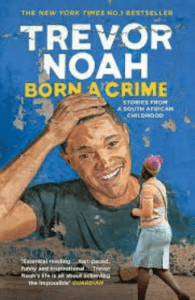
1919 by Eve L. Ewing
Ewing’s 1919 looks back on a century-old riot in Chicago, set off after a black teen drowned while being stoned by white people. She says the systemic racism that plagued the U.S. then still exists.
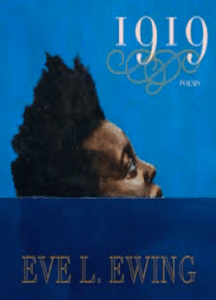
Native Son by Richard Wright
Native Son (1940) is a novel written by the American author Richard Wright. It tells the story of 20-year-old Bigger Thomas, a black youth living in utter poverty in a poor area on Chicago’s South Side in the 1930s. While not apologizing for Bigger’s crimes, Wright portrays systemic causation behind them.
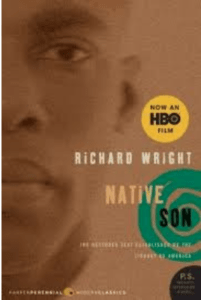
More like this: Anti-racism books
The Ungrateful Refugee by Dina Nayeri
A companion read to virtually every single book on this list. When Dina Nayeri was a child, she and her family fled Iran and sought asylum in the U.S. Her world was uprooted, and so was her sense of self. Nayeri uses her own experiences as a springboard for telling other immigrants’ stories, providing the unfiltered, no-holds-barred commentary about what it means to leave—and not be welcomed upon your arrival. 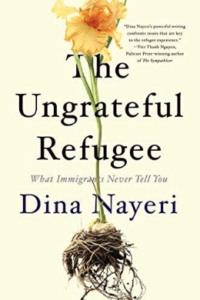
The Beekeeper of Aleppo by Christy Lefteri
Nuri, a beekeeper, and his wife, Afra, live a simple and happy life in Aleppo, Syria—at least, they do for years. Then comes war, the same one that has been dominating headlines for years. Following the couple’s journey away from everything they’ve ever known, The Beekeeper of Aleppo is a portrait of the sadness and strength behind so many news stories.
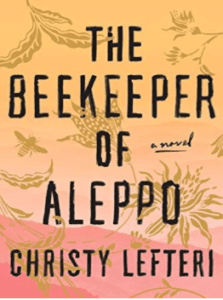
The Beautiful Boy by Rigoerto Gonzalez
This poetic memoir is, among other things, an elegant telling of a boy who grows up among poor Mexican farmworkers and loses his mother at age 12. But it’s also a tale of coming into his identity as a gay man living in a machismo culture before eventually accepting himself for all that he is—even after being abandoned by his father. 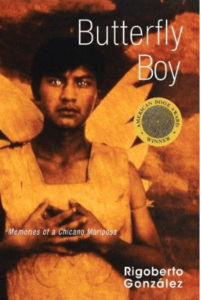
More like this: Immigration and Immigrants books
How to Give Up Plastic by Will McCallum
Plastics are everyone’s problem, and unless we as individuals, governments and companies all share responsibility, we won’t solve ever solve it. In this book, Will McCallum, head of oceans at Greenpeace UK, frames the current state of global plastic pollution and the environmental consequences of our throwaway, single-use culture. 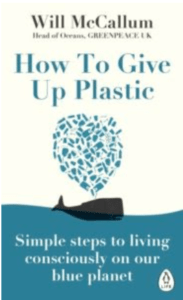
Storming the Wall by Todd Miller
It’s time to open our eyes to the economic and political implications of climate change. In “Storming the Wall,” Todd Miller tells the story of climate change refugees that have been forced from their homes and paints a larger picture of how wealthy countries like the United States are putting up walls, militarizing borders and bloating detention centers to restrict those seeking refuge and maintain the status quo of the haves and have nots.
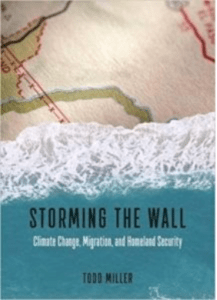
Don’t Even Think About It by George Marshall
Why is our response to climate change so woeful? George Marshall explores how we make choices to act or ignore. And when it comes to climate change, it’s usually the latter. Climate change is a “wicked problem,” Marshall writes, a complicated challenge with no clear enemy and no silver-bullet solution. To tackle this problem and mobilize action, “Don’t Even Think About It” argues we need science, but just as importantly, we need emotional, compelling narratives.
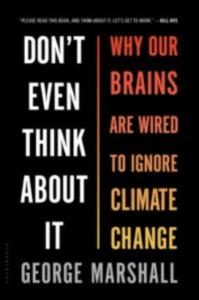
More like this: Climate Change and the Environment
Boy Erased by Garrarad Conley
Through an institutionalized Twelve-Step Program, Garrad Conley was supposed to emerge heterosexual. Instead, even when faced with a harrowing and brutal journey, Garrard found the strength and understanding to break out in search of his true self and forgiveness.
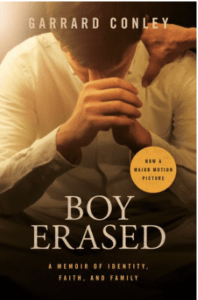
Stonewall by Martin Duberman
In Stonewall, renowned historian and activist Martin Duberman tells the full story of this pivotal moment in history. With riveting narrative skill, he re-creates those revolutionary, sweltering nights in vivid detail through the lives of six people who were drawn into the struggle for LGBTQ rights. Their stories combine to form an unforgettable portrait of the repression that led up to the riots, which culminates when they triumphantly participate in the first gay rights march of 1970, the roots of today’s pride marches.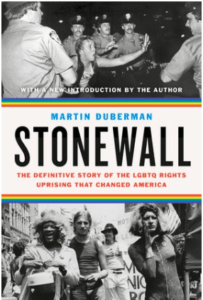
Sissy by Jacob Tobia
A heart-wrenching, eye-opening, and giggle-inducing memoir about what it’s like to grow up not sure if you’re (a) a boy, (b) a girl, (c) something in between, or (d) all of the above.
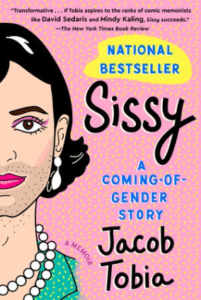
More like this: LGBTQIA+
Savage Inequalities by Jonathan Kozol
Savage Inequalities addresses the funding gap between schools in wealthy areas and those in poorer ones. To write this book on whether or not our education system really provides equal opportunity to every child, Kozul spent two years touring the country, interviewing teachers, principals, superintendents, and students.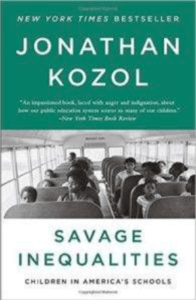
What Does it Mean to be Well Educated? by Alfie Kohn
This book features a series of essays about our education system’s fixation on scores and grades. As standardized tests continue to be the standard on which both students and teachers are judged, what are we losing? What is the real goal of education–and are we still focusing on this as we try new and different systems to evaluate and score students?
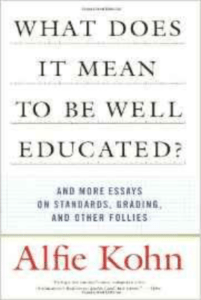
Waiting for “Superman”: How We Can Save America’s Failing Public Schools by Karl Weber
This book (and the documentary of the same name) draws on the knowledge of education reform experts to provide insight, suggestions, and resources to help the reader join the struggle to improve our schools.
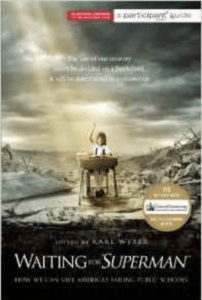 More like this: Education Inequality
More like this: Education Inequality
Freedom is a Constant Struggle by Angela Y. Davis
In this collection of essays, interviews, and speeches, Davis brings her perspective of decades of civil rights advocacy to present-day movements such as Black Lives Matter and prison reform.
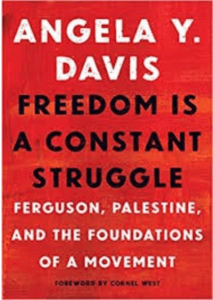
The New Jim Crow by Michelle Alexander
The book discusses race-related issues specific to African-American males and mass incarceration in the United States, but Alexander noted that the discrimination faced by African-American males is prevalent among other minorities and socio-economically disadvantaged populations.
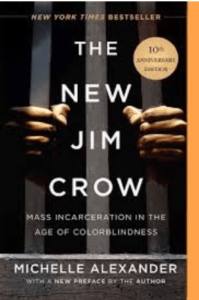
Just Mercy by Bryan Stevenson
After graduating from Harvard, Bryan Stevenson heads to Alabama to defend those wrongly condemned or those not afforded proper representation. One of his first cases is that of Walter McMillian, who is sentenced to die in 1987 for the murder of an 18-year-old girl, despite evidence proving his innocence. In the years that follow, Stevenson encounters racism and legal and political maneuverings as he tirelessly fights for McMillian’s life.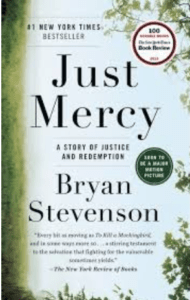
More like this: Mass Incarceration and Prison Reform
Capitalist Realism by Mark Fisher
Is There No Alternative? is a 2009 book by British theorist Mark Fisher, published by Zero Books. … The book investigates what Fisher describes as the widespread effects of neoliberal ideology on popular culture, work, education, and mental health in contemporary society.
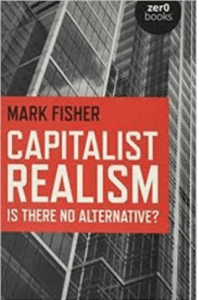
A Century of Wealth in America by Edward N. Wolf
Understanding wealth—who has it, how they acquired it, how they preserve it—is crucial to addressing challenges facing the United States. Edward Wolff’s account of patterns in the accumulation and distribution of U.S. wealth since 1900 provides a sober bedrock of facts and analysis. It will become an indispensable resource for future public debate.
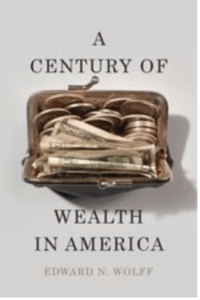
After Piketty: The Agenda for Economics and Inequality
“The book serves as a fantastic introduction to Piketty’s main argument in Capital [in the Twenty-First Century], and to some of the main criticisms, including doubt that his key equation—[r > g], showing that returns on capital grow faster than the economy—will hold true in the long run. It also contains thoughtful interventions in debates about the political economy of inequality.
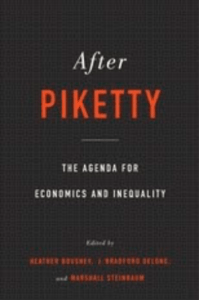
More like this: Capitalism and Economic Inequality
White Fragility by Robin Diangelo
The New York Times best-selling book exploring the counterproductive reactions white people have when their assumptions about race are challenged, and how these reactions maintain racial inequality.
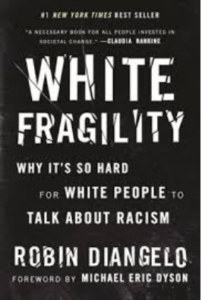
White Rage by Carol Anderson
Compelling and dramatic in the unimpeachable history it relates, White Rage will add an important new dimension to the national conversation about race in America.
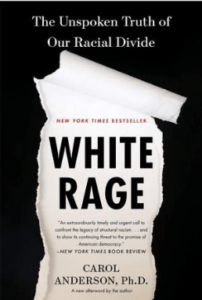
So You Want to Talk About Race by Ijeoma Oluo
In this New York Times bestseller, Ijeoma Oluo explores the complex reality of today’s racial landscape — from white privilege and police brutality to systemic discrimination and the Black Lives Matter movement — offering straightforward clarity that readers need to contribute to the dismantling of the racial divide.
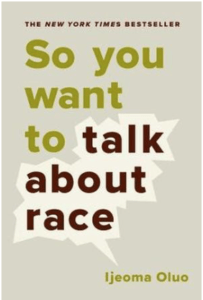 More like this: “Check your white privilege”
More like this: “Check your white privilege”